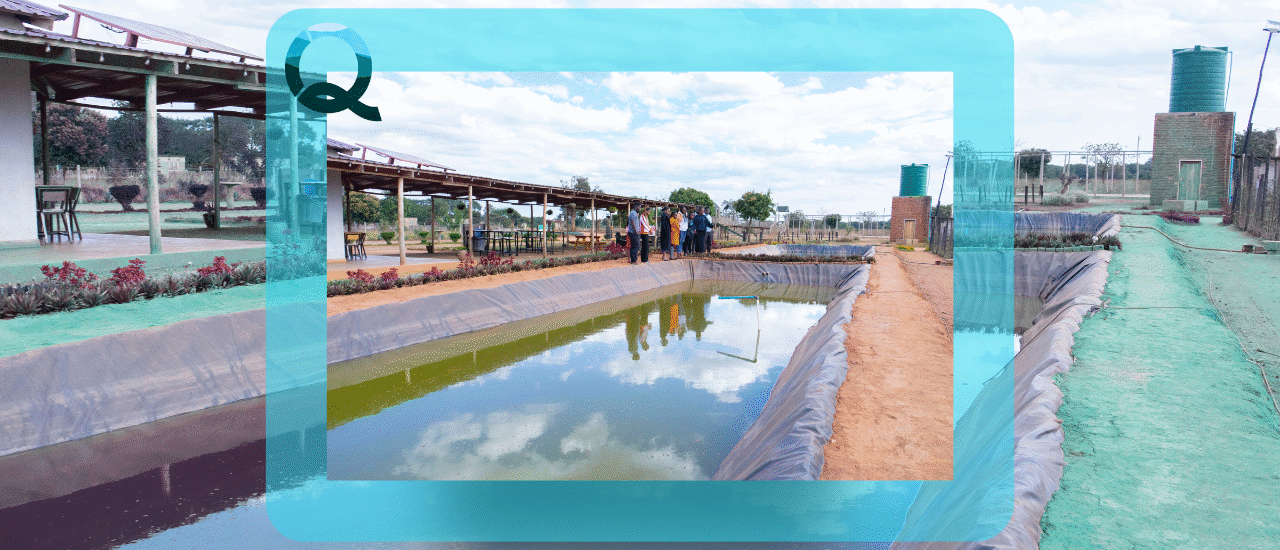In July 2024, after completing her mission at the United Nations in New York, Nthanda Manduwi returned to Malawi to reflect on the future of Kwathu Kollective. The organization had just completed its flagship #DigitalMalawi World Bank project, training over 10,000 young people in digital skills through the Kwathu Innovation and Creative Centre.
It was a moment of both achievement and reckoning. The team had proven itself in digital media and edtech, yet two hard realities became clear:
- The local media market had become oversaturated, making it difficult to compete without disruptive innovation that the ecosystem wasn’t ready to absorb.
- In edtech, schools needed solutions, but the willingness to pay was too low to make such models sustainable at scale.
The question emerged: what next? How could Kwathu leverage its trained talent, its technology base, and its entrepreneurial vision in a way that addressed a much larger, more urgent market?
A single conversation with a trusted peer, revealing how one soybean farmer managing a cooperative had generated upwards of $50 million in a year, reframed the opportunity. It became clear that food systems — not media or edtech alone — would define Africa’s next wave of transformation.
Later that month, the Kwathu team visited Small Farm Cities Africa, an extraordinary initiative reimagining agriculture not just as food production, but as the foundation of thriving communities.
Small Farm Cities has built a model where farming is organized as miniature cities: scalable, integrated systems that combine crops, livestock, housing, infrastructure, and innovation into a seamless ecosystem. What they are doing is nothing short of revolutionary — demonstrating that agriculture can be modern, organized, and aspirational.
Walking through their farm, the Q2 team was struck by the clarity of vision and execution. Every corner revealed a story of possibility — from neatly structured plots to carefully managed livestock systems, to the infrastructure that tied it all together. It was more than a farm; it was a living prototype of what Africa’s food systems could become if innovation and community were placed at the center. The experience left the team both humbled and inspired, convinced that this kind of bold reimagination of agriculture is what the continent — and the world — needs.
At the time, Q2’s vision was entirely grounded in real farms. The focus was on building physical smart mega farms across Malawi and beyond, using them as living laboratories to reimagine food systems. The idea of gamification had not yet entered the picture.
This hybrid model — where real systems meet gamified simulations — unlocks multiple markets simultaneously:
- B2G: Licensing and integrating KSIF into school curricula.
- B2B: Partnering with enterprises for supply chain innovation.
- B2C: Engaging youth and gamers worldwide through play.
For investors, the case is clear: Africa’s agricultural market is projected to surpass $1 trillion by 2030, yet scalable innovation is rare. By pairing digital storytelling with real farm systems, Q2 is not only building products, but creating a platform that makes agriculture aspirational, profitable, and future-proof.
Want to Work with Us?
Investors & partners: Work with Q2 to scale Malawi pilots, co-finance Smart Village nodes, and co-publish Q2 Sims across mobile app stores and console portals: invest@q2corporation.com
Developers & creators: Join Kwathu Kollective as we build Africa’s ag-simulation franchise.
Public sector & donors: Co-fund digital extension and IoT at the last mile to de-risk farmer adoption. Get in touch: q2@kwathu.org
Together, let’s future-proof global communities through smart farming and innovative play.


